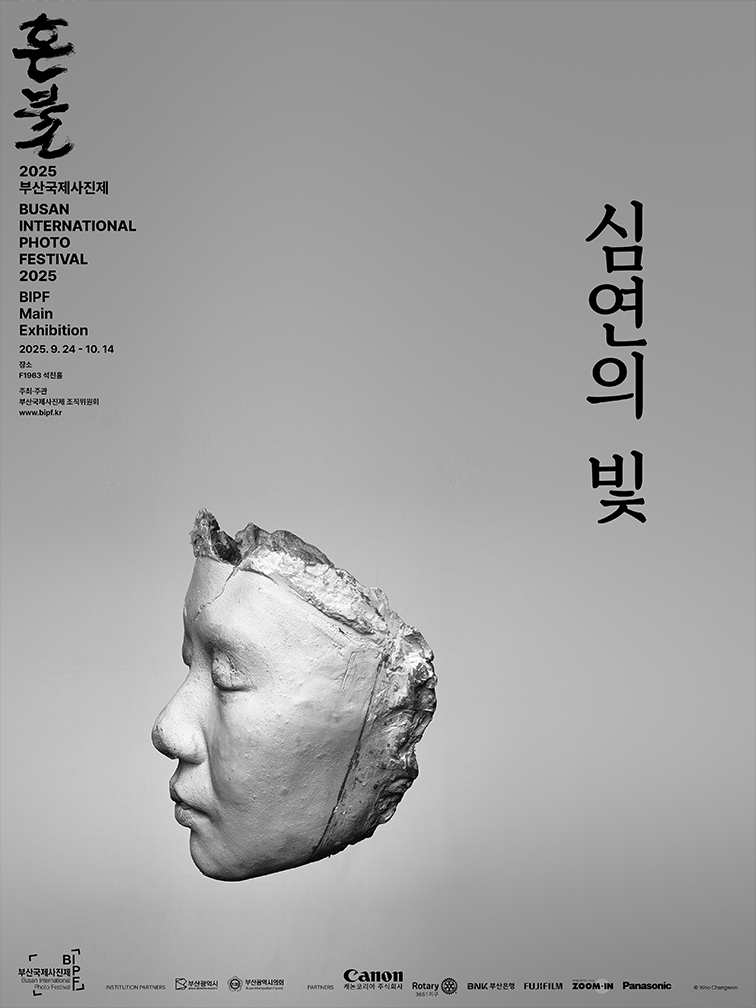
Honbul, Light of the Abyss
There is a saying: “A nation that forgets its past has no future.” It is a warning
that remembering and preserving history is the very key to a nation’s existence
and future. Honoring and reawakening the memories and spirit that form the
foundation of cultural identity for both individuals and society also serves as a
vital principle that links past and present while guiding us toward the future. Yet
beneath the dazzling progress Korea has achieved since the Korean War, we
also find troubling realities: the alienation and isolation of individuals, the
worship of material wealth, the erosion of humanity, and the destruction of
nature. Our reflection upon these issues has, over time, grown faint.
The 2025 Busan International Photo Festival seeks, through the theme Honbul,
to revisit the spirit and culture that contemporary society has neglected, to
recover the essence of human existence and the value of community, and to
open conversations around the future values our society must embrace, such
as reconciliation with history, collective resilience, and coexistence with nature.
Honbul, Light of the Abyss confronts the profound and shadowed depths of both
the individual and the collective, while discovering within them a hidden light—
hope and vitality—through the sensibilities of Korean culture and tradition. The
exhibition highlights the possibilities of cultural reflection and renewal by
recalling pain, evoking enduring cultural spirit, and inviting works that explore
the vitality and energy of the Korean people as well as the pursuit of spiritual
value and inner essence. By bringing together newly reinterpreted works under
the shared theme of Honbul, the exhibition endeavors to embody its meaning in
multiple dimensions and to shape an unwavering collective memory.
The works in Honbul complement and overlap with one another, weaving a
narrative of hope and awakening drawn from the depths, while also
encouraging contemplation beyond the image of Honbul, a concept impossible
to define in a single phrase. Through the inherent abstraction of photography,
the exhibition conveys memory that bridges the present and the future. In doing
so, it fulfills what Walter Benjamin called the true task of history—restoring “the
memory of the oppressed”—while also marking a turning point in the evolution
of Korean photography, presenting a renewed identity for photographic art in
Korea.
Curator Jeongeun Lee




















